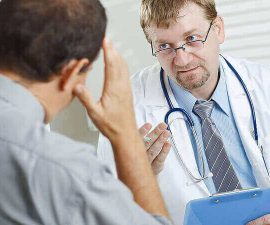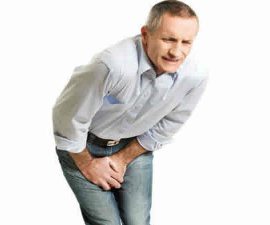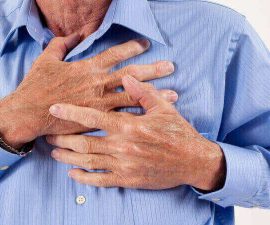Hernia is a localized bulge that occurs when you have a hole or weakness in the muscular wall. Your internal part of the body may push and protrude through this weakness spot. Though the problem is quite common and often pain-free, it can also sometimes cause a number of significant discomforts. Can it also cause back pain?
Hernia symptoms
The way of how hernias develops can vary. Some occur at birth, and some are there after certain surgical procedures. But in most cases, they‘re more likely to occur with age! The strength of the muscular abdominal wall declines gradually over time, and eventually you may have a weakness spot that allows your organs /tissues to protrude.
Being older is not the only one to blame. Because the risk of developing the disease can also increase when the muscular wall of your stomach are under abnormal, higher than normal pressure – if you’re extremely obese, suffer from a chronic cough, and have a frequent heavy lifting,for examples!
Hernia symptoms are usually dependent on several factors especially such the severity and location of the problem. Even in some cases, it may not cause any symptoms. But in general, the common symptoms are as follows:
- A visible bulge, lump, or swollen area. The bulge of hernia can occur in several locations, the common ones are in the abdomen and groin.
- Sometimes the bulge is painful to touch, though not always. You usually have pain or discomfort (especially around the bulge) on exertion such as when lifting, straining, or coughing. It may also cause a pulling sensation.
- The bulge usually enlarges on exertion, and it may look smaller (almost invisible) when you’re lying down.
- Digestive upsets; constipation for example.
- Uncomfortable, heavy feeling in the intestine especially when you’re bending over.
A hernia doesn’t always bother you a lot – even again, you may have no any symptom. Therefore, treatment is not always necessary. But if the bulge gets larger and it’s now bothering you a lot, treatments are required. Sometimes surgical procedure is recommended to repair the bulge.
In most cases it is not immediately life-threatening. However, there is a chance for the problem to turn into serious and cause serious obstruction and strangulation.
The contents of hernia can sometimes get trapped and more difficult to be pushed back in. Over time this may cause obstruction that will cut off the blood flow to the affected area. The symptoms include nausea, vomiting, severe pain, difficulty passing stools and gas. Strangulated hernia is an emergency condition, and therefore immediate surgery is needed.
Can hernia cause back pain?
Worldwide, millions of people have ongoing back pain. Yup, it’s a common condition and will usually improve with some lifestyle measures. But sometimes there may be an underlying condition behind the problem.




